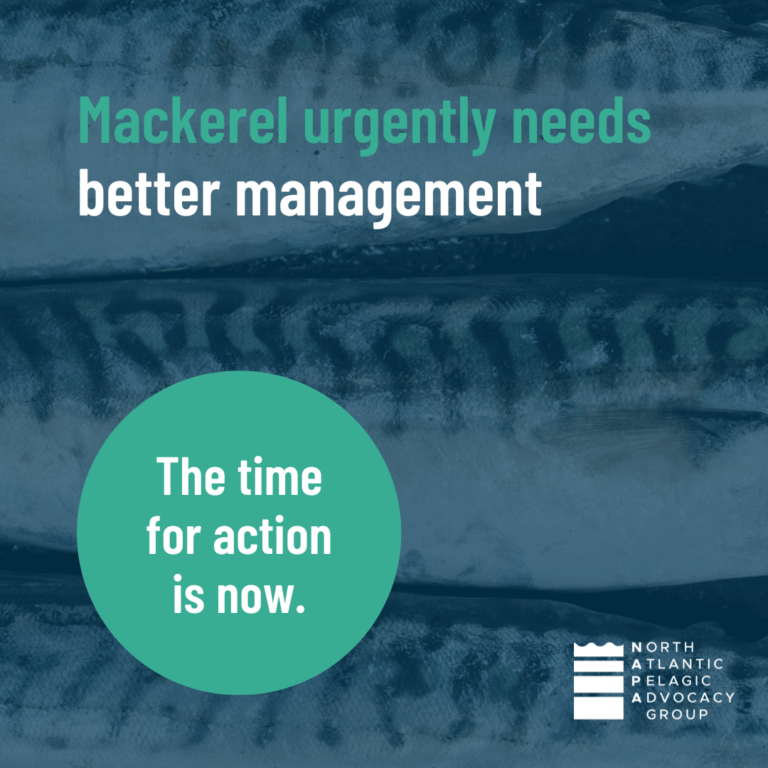The North Atlantic Pelagic Advocacy Group (NAPA) has renewed its urgent calls for an end to the irresponsible management of key North East Atlantic pelagic fisheries – including North East Atlantic mackerel. The calls follow the recent announcements of declines in sustainability ratings for the stock by two environmental charities: the UK Marine Conservation Society and GoodFish in the Netherlands. The political impasse surrounding mackerel management – in which Coastal States have failed to reach comprehensive catch-sharing agreements – has led to individual countries setting their own quotas, resulting in average excess quotas of 40% above advised levels since 2010. The species has been experiencing a population decline since 2015.
NAPA, a coalition of over 50 global leaders in retail, aquafeed, food service, and seafood processing has been working with stakeholders from across the seafood and political sectors since 2020 to secure a sustainable future for North East Atlantic pelagic fisheries. Through its groundbreaking Fishery Improvement Projects (FIPs), the group is calling for Coastal States to work together to deliver comprehensive sharing arrangements that keep total catches within scientific limits.
While international political agreements take time to achieve, NAPA has identified interim steps that all Coastal States can take to demonstrate that they are committed to making progress in their management of mackerel fishing. This includes limiting high seas catches to 10% of total catches, focussing on human consumption for the use of whole mackerel, and limiting banking and borrowing– in which countries bring forward or push back certain amounts of quota between years – to 10% of the annual total.
Rob Blyth-Skyrme, NAPA Project Lead, said, “We are bitterly disappointed to still be in this position and it is no surprise to see more and more calls for an end to this dearth of leadership. Coastal States must recognise their obligations to safeguard the future of North East Atlantic mackerel – and the damage caused by their continued inability to cooperate with each other. If they don’t come together to find a way forward, they are taking environmental and economic risks that threaten to destroy the businesses and communities they serve, and who depend on the health of this species.
Blyth-Skyrme adds, “Individual NAPA members have a choice about where they source their raw material from: commitment to the interim steps that we have identified is, and will continue to be, an important factor for consideration. We want to see meaningful action from individual Coastal States that demonstrates these steps are being followed – there is no excuse for complacency.”
NAPA’s North East Atlantic mackerel FIP ends in April 2026. If Coastal States have not delivered sufficient improvements in management by then, the group warns that its members will be forced to seriously reconsider their pelagic sourcing decisions – potentially looking to other species and regions with a more dependable future.
View the official press release here.

New research by the North Atlantic Pelagic Advocacy Group (NAPA) has revealed that Atlanto-Scandian herring...
Read More >
Date of issue: 17 October 2022 The news. The International Council for the Exploration of...
Read More >
Date of issue: 12 October 2023 In an open letter to Ministers, a pioneering collective...
Read More >